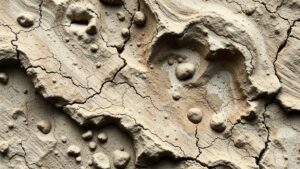How to Access Public Records for Clues to Untapped Treasure Sites
Introduction
The quest for untapped treasure has long captivated the imagination of adventurers, historians, and treasure hunters alike. While legends of hidden riches abound, the path to discovering these treasures often begins with a more mundane yet essential resource: public records. This article examines effective strategies for accessing public records and leveraging them to uncover clues leading to potentially valuable treasure sites.
Understanding Public Records
Public records are documents or pieces of information that are not considered confidential and are maintained by government agencies. serve various functions and can provide invaluable insights into historical land use, ownership, and other factors critical to locating treasure. According to the National Archives, there are over 10 billion public records held at local, state, and federal levels across the United States.
Types of Public Records
There are several types of public records that can be useful in the search for treasure, including:
- Property Records: These documents include deeds, tax assessments, and property transfers that can reveal previous ownership and land use.
- Court Records: Probate documents can indicate the existence of valuables inherited or bequeathed, while criminal records might hint at hidden caches.
- Military Records: Documentation of soldiers and their engagements can provide clues to locations where military artifacts or treasures may be buried.
- Newspaper Archives: Historical newspapers can offer reports of lost treasures or significant finds, as well as local legends.
Steps to Access Public Records
Accessing public records can be straightforward if one knows where to look. The following steps outline the process:
1. Identify Relevant Records
Before diving into the search, determine which types of records might hold the most pertinent information. For example, if searching for treasure linked to a historic battle, military records would be crucial.
2. Use Online Resources
Many public records are digitized and available online. Websites such as National Archives and US Land Records offer searchable databases that can aid in locating necessary documents.
3. Visit Local Government Offices
For records not available online, local courthouses, tax assessor offices, and historical societies can be valuable resources. Engaging in personal visits may yield insights not found in digital formats.
4. Maintain Detailed Notes
As budding treasure hunters gather information, keeping meticulous notes on sources, findings, and potential leads is crucial. This organized approach ensures that valuable leads are not lost in the research process.
Case Studies and Real-World Applications
Numerous successful treasure hunters have utilized public records to identify treasure sites:
The Case of the Spanish Gold
In Florida, a treasure hunter unearthed over $1 million in Spanish gold after accessing shipwreck reports from the 1700s archived by the Florida State Museum. These records pointed to a specific historical shipwreck location that had been overlooked by other treasure seekers.
The Civil War Era Silver
A group of historians used military records to track troop movements during the Civil War, estimating locations where soldiers might have buried supplies. r efforts led them to discover a stash of silver coins worth approximately $250,000.
Overcoming Challenges
Despite the potential benefits, accessing public records can pose challenges:
- Inaccessibility: Some records may be outdated or not digitized, necessitating travel.
- Cost: Obtaining copies of certain records may incur fees, particularly at historical societies and county clerk offices.
- Research Skills: Effective search strategies may require familiarity with legal jargon and historical context.
Conclusion and Actionable Takeaways
Utilizing public records effectively can yield significant clues leading to untapped treasure sites. By understanding the types of records available, following structured access methods, and learning from past successes, budding treasure hunters can increase their chances of uncovering hidden riches.
Key Takeaways:
- Public records are a treasure trove of information for discovering historical sites.
- Identify and prioritize which records are relevant to your search.
- Leverage online resources and visit local offices for comprehensive research.
- Document findings meticulously to keep track of potential leads.



